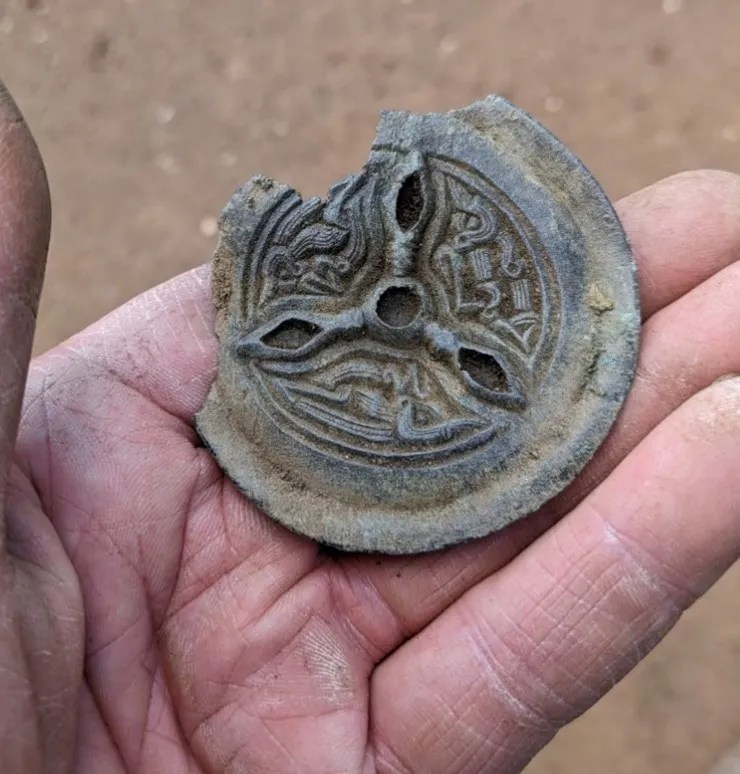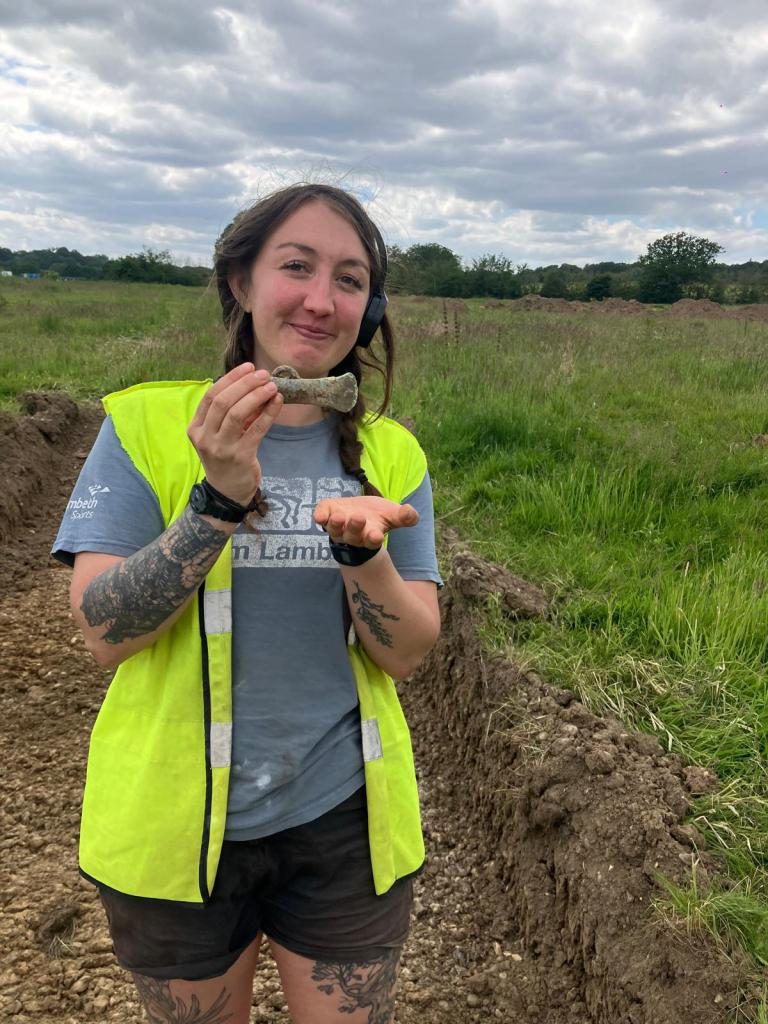
Pre-Construct Archaeology is one of UK’s largest archaeological companies, with seven regional offices across the country. We have been delivering professional heritage services for more than 30 years, working on some of the largest and most complex sites in Britain. As 2024 progresses, we are undertaking some very exciting projects in the Cambridge area and beyond. We are looking to recruit staff at the following levels: Trainee, Archaeologist, Assistant Supervisor, Supervisor, Project Officer and Senior Project Officers for our Cambridge office.
PCA offers a competitive salary and a range of attractive benefits, including a pay banding structure that allows for career progression. All successful candidates will undergo a probationary 3-month period (6 months for trainees) after which, given satisfactory performance, they will be offered a further contract, work permitting.

Location: Cambridge
Working week: Monday to Friday, 37.5 hours per week, usually 8am – 4 pm
Salary range:
-
- Senior Project Officer: starting at £37,156.45
- Project Officer– starting at £34,672.71
- Supervisors – starting at £30,094.90
- Assistant Supervisors – starting at £28,384.53
- Archaeologists – starting at £25,989.71
- Trainees – £23,903.03 per annum
General Requirements for all the following positions:
-
- Degree in Archaeology or related subject (e.g. History, Classics, Geology etc.)
- Ability and willingness to work on site in all kinds of weather
- Excellent oral and written English, basic maths skills are essential
- Willingness to learn new skills
- Good teamwork
- Excellent punctuality and timekeeping
- Attention to detail
- Commitment to PCA’s health and safety policies at all times
- Eligible to live and work in the UK
Senior Project Officers
Responsibilities (as described for Project Officers, plus the following):
-
- Undertaking oversight and control of project officers and supervisors and ensure they undertake their designated roles and responsibilities.
- Directing archaeological fieldwork projects ensuring efficient delivery whilst being mindful of project objectives, programme and budget.
- Manage field staff, including non-excavators in a safe and expeditious manner.
- Liaise with clients/agents/monitors etc. on site.
- Taking up of higher-level responsibilities, as defined by the senior management team
Project Officers
Responsibilities (as described for Supervisors, plus the following):
-
- Assisting in the management of projects
- Supervision of a variety of sites, including large scale and infrastructure projects
- Preparing written account of undertaken field work, including publications, journal articles etc.
- Report checking, preparing WSIs, DBAs and RAMS
- Regular liaison with clients and contractors
- Health and safety responsibilities
Minimum requirements: (as described for Supervisors, plus the following)
-
- Degree in Archaeology or related subject
- Full clean UK driving license and willingness to drive company vehicles
- Experience in GPS survey
- At least five years of field work experience in the UK, including minimum two years of working in a supervisory role
- Proven written account of undertaken projects (grey literature reports, desk-based assessments, publications etc)
- The successful candidates need to present a high level of self-motivation and discipline
- Commitment to PCA’s health and safety policies at all times
Supervisors
Responsibilities:
-
- Excavation and recording of archaeological features and deposits to a high quality
- Supervision of small teams
- Machine watching
- Site survey
- On site liaison with clients and contractors
- Preparing written account of undertaken field work (grey literature reports)
Minimum requirements:
-
- Ability to meet deadlines while maintaining excellent quality of work, mindfulness of project budget
- Computer literacy (MS Office package, databases, knowledge of graphic programs such as Auto Cad, QGIS, Illustrator etc. will be advantageous)
- Minimum two years of fieldwork experience in the UK
- Experience in report writing is desirable but not essential
- Experience in GPS surveying is desirable but not essential
- Full clean UK driving license and willingness to drive company vehicles (if applying for a Supervisor)
Assistant Supervisors
Responsibilities:
-
- Excavation and recording of archaeological features and deposits to a high quality
- Supervision of small teams
- Machine watching
- Site survey
- On site liaison with clients and contractors
- Preparing written account of undertaken field work (grey literature reports)
Minimum requirements:
-
- Ability to meet deadlines while maintaining excellent quality of work, mindfulness of project budget
- Computer literacy (MS Office package, databases, knowledge of graphic programs such as Auto Cad, QGIS, Illustrator etc. will be advantageous)
- Minimum two years of fieldwork experience in the UK
- Experience in report writing is desirable but not essential
- Experience in GPS surveying is desirable but not essential
- Full clean UK driving license
Archaeologists
Responsibilities:
-
- Excavation of archaeological features and deposits
- Collection and labelling of artefacts
- Writing context sheets for archaeological features and deposits, drawing plans and sections to scale, on site photography and basic survey using a GPS unit
- Collection and processing of environmental samples
- Post-excavation office work (occasionally required) including washing, marking and labelling finds, archiving site records
Minimum requirements:
-
- 3 months of commercial fieldwork experience from the UK
Trainees
Responsibilities (you will receive training in the following) – 6 months :
-
- Excavation of archaeological features and deposits
- Collection and labelling of artefacts
- Writing context sheets for archaeological features and deposits, drawing plans and sections to scale, on site photography and basic survey using a GPS unit
- Collection and processing of environmental samples
- Post-ex office work (occasionally required) including washing, marking and labelling finds and archiving site records
Our employee benefits:
-
- Friendly and supportive work environment
- 28 days of annual leave (including bank holidays and an extra 3 days for Christmas, if employed over the Christmas period), rising on service length
- £22.50 per night subsistence when working away from home and high-quality accommodation provided
- High quality PPE and site welfare provision– the safety of our staff always comes first
- Mental Health First Aiders
- Cycle to work scheme
- Flexible working
- Christmas vouchers
- H&S training relevant for your role will be provided and paid in full (SSSTS, First Aid, Asbestos Awareness, CAT and Genny etc.)
- Chartered Institute for Archaeologists (CIFA) subscriptions paid in full
- Paid mileage if using own vehicle (subject to eligibility)
- Annual appraisal and pay progression opportunities
- Company pension scheme
How to apply:
Please email your CV and covering letter to Caroline Edwards, HR Manager: CEdwards@pre-construct.com Please state on your application which role you are applying for and describe your suitability by referring to the requirements listed above. If successful you will be asked to attend an interview at our Cambridge offices.
PCA is committed to a comprehensive equal opportunities policy in which individuals are selected and treated on the basis of their relevant merits and abilities without regard to race, religion or belief, colour, sex, age, national origin, disability or sexual orientation. All applicants with the relevant qualifications and experience are welcome to apply for this opportunity. Please be advised that you must hold the right to work and live in the UK in order to apply for this job.
PCA follow all current guidelines regarding SOP and take the safety of our staff as paramount – advice is up to date with government guidance and site-specific RAMS are available.
Please be advised we are expecting a high volume of applications, and therefore cannot commit to responding to all emails. In accordance with our GDPR policy, we will not keep unsuccessful applicants’ details or CVs on our system, unless you expressly request that we do.
Closing date: 23/08/2024


























